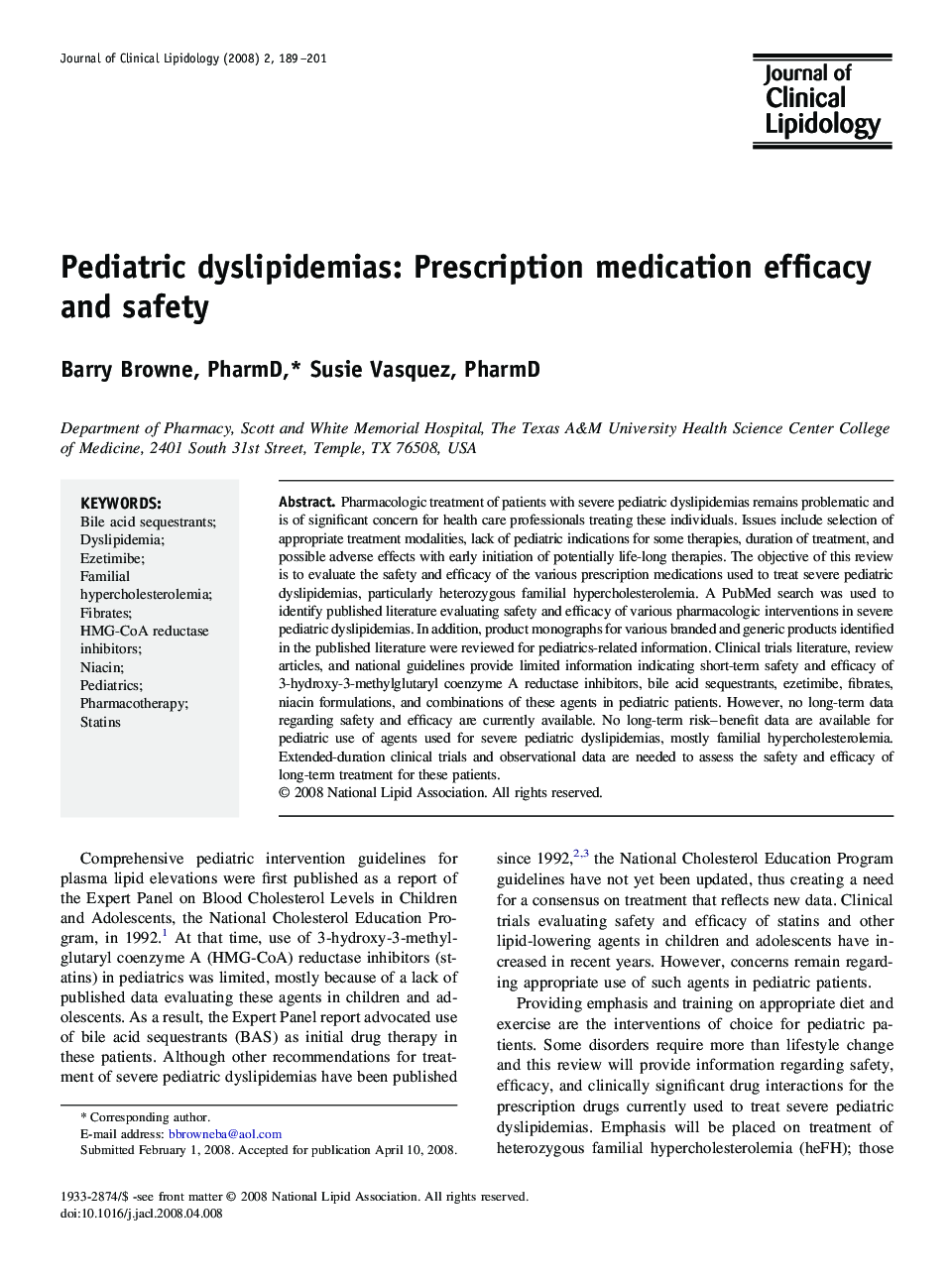| Article ID | Journal | Published Year | Pages | File Type |
|---|---|---|---|---|
| 2967209 | Journal of Clinical Lipidology | 2008 | 13 Pages |
Pharmacologic treatment of patients with severe pediatric dyslipidemias remains problematic and is of significant concern for health care professionals treating these individuals. Issues include selection of appropriate treatment modalities, lack of pediatric indications for some therapies, duration of treatment, and possible adverse effects with early initiation of potentially life-long therapies. The objective of this review is to evaluate the safety and efficacy of the various prescription medications used to treat severe pediatric dyslipidemias, particularly heterozygous familial hypercholesterolemia. A PubMed search was used to identify published literature evaluating safety and efficacy of various pharmacologic interventions in severe pediatric dyslipidemias. In addition, product monographs for various branded and generic products identified in the published literature were reviewed for pediatrics-related information. Clinical trials literature, review articles, and national guidelines provide limited information indicating short-term safety and efficacy of 3-hydroxy-3-methylglutaryl coenzyme A reductase inhibitors, bile acid sequestrants, ezetimibe, fibrates, niacin formulations, and combinations of these agents in pediatric patients. However, no long-term data regarding safety and efficacy are currently available. No long-term risk–benefit data are available for pediatric use of agents used for severe pediatric dyslipidemias, mostly familial hypercholesterolemia. Extended-duration clinical trials and observational data are needed to assess the safety and efficacy of long-term treatment for these patients.
